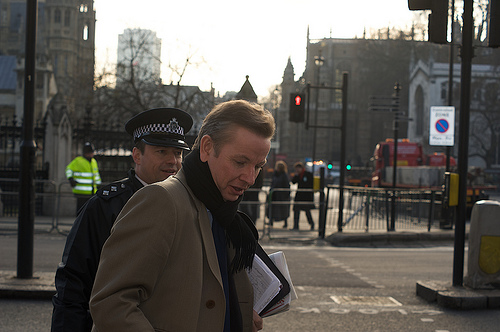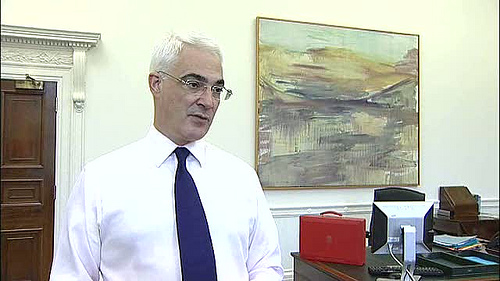A flag-lowering ceremony was held today in Basra to mark the official end of combat operations in Iraq.
But as British troops, 179 of which have died and countless more have been wounded, come home questions must once again be raised over what our troops were doing in Iraq in the first place.

British troops in Iraq (Photo: Flickr - Creative Commons - Liberal Democrats)
Arguably, the nation was deceived by Tony Blair’s Government into believing that there was a strong case for war in Iraq, based on the supposed existence of weapons of mass destruction.
Now, six years on and after no WMD have been found, many people seem happy to let the matter rest when a proper inquiry into the war should be well underway.
Granted, the government has announced that an inquiry will take place this summer, but it is unlikely to match the comprehensive nature of the Franks Committee investigation that looked into the 1992 Falklands Conflict.
Someone should surely be held accountable for deliberately misleading the country into believing that Iraq possessed weapons capable of threatening the UK and the investigation should start straight away, instead of being delayed to reduce its force and relevance.
And, although the national outcry into the manner in which war was entered into has died down, there are certainly many people who feel that the time is right for a proper investigation.
Surely, a full, frank and independent investigation into the war is the least that British troops deserve after years of dangerous operations in Iraq.









